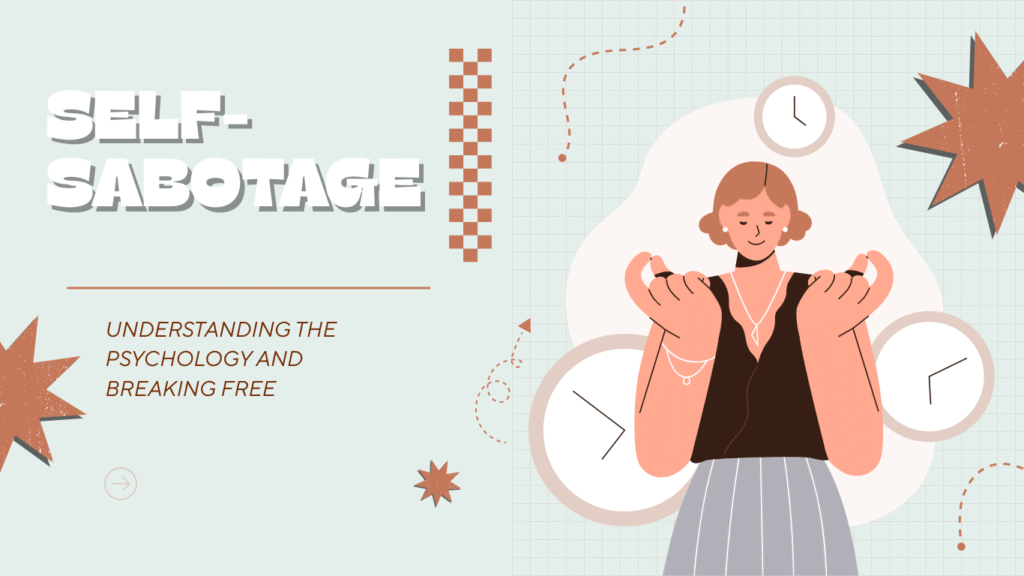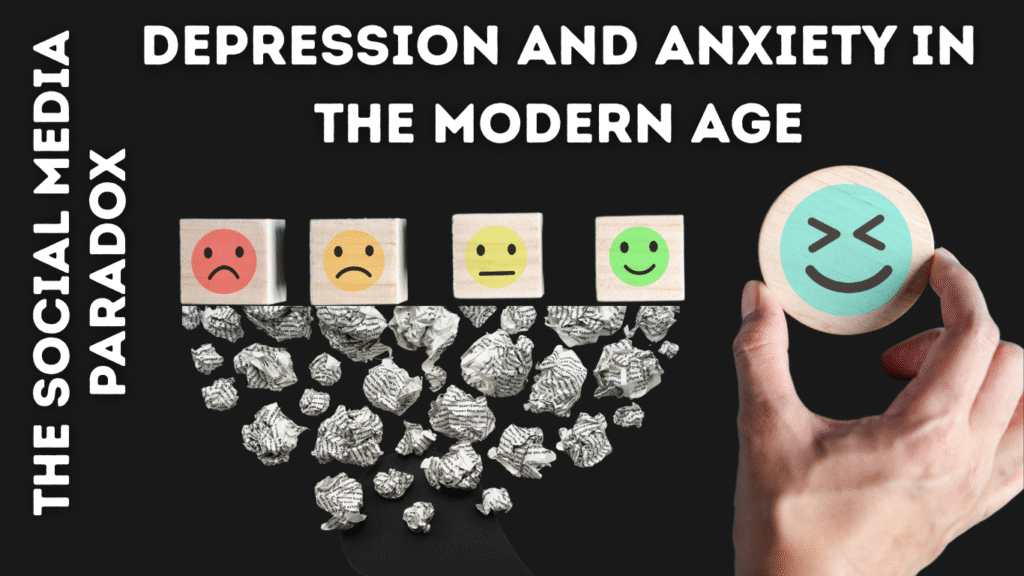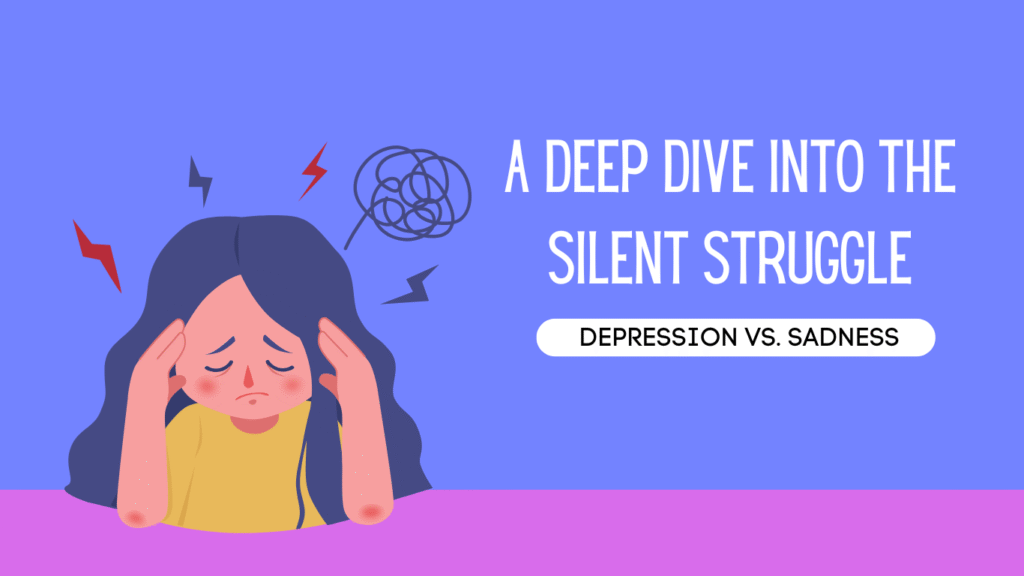What is Self-Sabotage?
Self-Sabotage Definition
Self-sabotage is when you consciously or unconsciously act in ways that prevent you from reaching your goals. It’s like having one foot on the gas and one on the brake. You want success, happiness, or love—but somehow, you keep getting in your own way.
The official self sabotage definition is: behaviors or thought patterns that undermine your own progress and well-being, often driven by unconscious fears or limiting beliefs.
Think of it like this: You’re climbing a ladder, and with every few steps, you kick one of the rungs out yourself. That’s self-sabotage. You delay, doubt, avoid, or even destroy things that are good for you.
Self-Sabotaging Meaning in Everyday Life
What’s the self-sabotaging meaning when applied to real life? It’s when you:
Skip studying and bomb the test, even though you want to do well
Push away a partner even though you crave love
Overspend when you’re trying to save
Procrastinate on a project that’s important to you
The truth is, we all self-sabotage in some way. The key is to recognize it—and ask why.
What is Self-Sabotaging?
So, what is self-sabotaging, really? It’s any action or habit that conflicts with your true desires or long-term well-being.
These actions often stem from:
Fear (of failure, success, judgment)
Guilt or shame
Low self-worth
The belief that you don’t deserve better
The worst part? Self-sabotage feels like self-protection. It’s a form of emotional safety—a way to avoid the risk of disappointment by not trying fully in the first place. But in the long run, it keeps you stuck, unhappy, and exhausted.
Why Do People Self-Sabotage?
Fear of Failure and Fear of Success
Why do people self sabotage? One major reason is fear—both of failure and success.
Fear of failure: “If I try and fail, I’ll feel humiliated.” So you don’t try at all.
Fear of success: “What if I get it and can’t maintain it?” So you sabotage before it happens.
It’s easier to stay in familiar discomfort than to step into unknown joy. But growth requires discomfort. Self-sabotage delays it.
Low Self-Worth and Core Beliefs
At the root of self-sabotaging behaviors is often a belief that you’re not worthy of success, love, or peace.
You might have internal messages like:
“I’m not good enough.”
“I’ll just mess it up anyway.”
“People will leave if I succeed.”
These beliefs come from past experiences—criticism, abandonment, trauma—and they operate in the background, guiding your behavior without you even realizing.
Childhood Experiences and Conditioning
Self-sabotage often begins in childhood. If love was conditional, if achievements were never enough, or if emotions weren’t validated, you may have learned that:
Good things don’t last
You have to protect yourself from disappointment
You’re not allowed to shine
These early messages become subconscious programming that leads to self sabotaging behavior in adulthood.
Common Types of Self-Sabotaging Behaviors
Procrastination and Perfectionism
Putting things off isn’t always laziness—it’s often a form of self-sabotage.
You may:
Fear doing it wrong, so you don’t do it at all
Feel overwhelmed by expectations, so you freeze
Delay to avoid facing judgment or feedback
Perfectionism is another trap. You convince yourself everything must be flawless before it’s worth doing—so you never start or finish anything meaningful.
Self-Sabotaging in Relationships
What is self-sabotaging relationships? It’s when you destroy or undermine a relationship, even if it’s going well.
You may:
Start arguments out of nowhere
Push partners away emotionally
Pick fights when things feel “too good”
Avoid vulnerability
Why? Because love feels risky. Because deep down, you believe you’ll be hurt, left, or exposed. So instead of getting hurt by someone else—you hurt yourself first.
Negative Self-Talk and Impostor Syndrome
Self-sabotage is often fueled by your inner voice—the one that says:
“You’re a fraud.”
“You’ll never make it.”
“Everyone’s better than you.”
This inner critic can derail your goals before you even begin. It convinces you that trying is pointless, so you don’t bother. Or you give up the moment things get hard.
This mental chatter is not truth—it’s a trauma echo. And it can be changed.
What is Self-Sabotaging Relationships?
Signs You’re Sabotaging Love
Self-sabotaging relationships is one of the most painful and common forms of self-sabotage. Imagine craving love deeply, yet doing things that destroy the connection when it finally arrives.
Signs include:
Picking fights for no reason
Overanalyzing every word or gesture
Shutting down emotionally when things get serious
Distrusting your partner without cause
Ghosting or withdrawing when you start to care
The pain doesn’t come from not wanting love—it comes from fearing what love might bring: rejection, abandonment, or exposure. So instead of risking those outcomes, you end the relationship before someone else can.
How Attachment Styles Contribute
Attachment theory plays a big role in what is self-sabotaging relationships. Our early childhood experiences shape how we relate to others emotionally.
Anxious attachment: You crave closeness but fear being too much. So you become clingy or overly sensitive, which can push others away.
Avoidant attachment: You fear being controlled or hurt. So you pull back just when intimacy deepens.
Disorganized attachment: A mix of both—fear and desire in constant battle.
Understanding your attachment style helps you see your self-sabotage meaning more clearly—it’s not madness, it’s a survival strategy learned long ago.
How to Heal and Reconnect
To stop self sabotaging your relationships, you must first reconnect with yourself. Healing starts from the inside out.
Steps to begin:
Acknowledge your fears without shame
Communicate openly with partners about your triggers
Reframe love as a safe experience, not a threat
Seek therapy or coaching to unpack deeper wounds
Real love can feel uncomfortable at first if you’ve never had it. Give yourself permission to grow into it slowly.
The Psychology Behind Self-Sabotage
The Subconscious Mind and Safety
Why do people self sabotage even when things are going well? Because our subconscious minds crave safety over success. And to the brain, “safe” often means “familiar.”
If you grew up around chaos, rejection, or instability—then peace and happiness feel foreign. So when life finally starts looking up, a part of you panics and says, “This won’t last.”
So you unconsciously sabotage it—because chaos feels familiar, and familiarity feels safe.
Self-Fulfilling Prophecies
Another layer of self-sabotaging meaning is the cycle of self-fulfilling prophecies.
If you believe:
“I’ll mess this up” → You act anxious and avoidant → It falls apart
“No one truly loves me” → You test people or push them away → They leave
And just like that, your belief is “confirmed.” Not because it was true—but because your actions made it true.
To break this cycle, you have to change the belief at its root. Start believing you’re worthy, and your behavior will follow suit.
Trauma, Shame, and Identity
What is self sabotage if not the residue of unhealed trauma and shame?
Trauma teaches you that pain is normal. Shame tells you that you’re broken or unworthy. Together, they build an identity where self-destruction feels deserved.
This is why self-sabotage is so tricky—it’s not just about changing habits. It’s about redefining how you see yourself. Healing means shedding the false stories and building an identity rooted in love, not fear.
How to Stop Self-Sabotaging
Awareness and Pattern Recognition
The first step in learning how to stop self sabotaging is to recognize your patterns.
Ask yourself:
When do I tend to self-sabotage? (e.g., right before success, during conflict)
What thoughts lead up to it?
What emotion am I avoiding?
Awareness isn’t enough to stop the behavior instantly—but it gives you power. It lets you pause before repeating old patterns.
Start journaling or keeping a “sabotage log” where you track triggers and behaviors. This creates space between stimulus and reaction.
Rewriting Your Inner Narrative
Your behavior follows your beliefs. If you want to stop self-sabotage, you must change the internal story driving it.
Try this:
Identify the belief: “I always ruin things.”
Challenge it: “Is that 100% true? Where did I learn that?”
Replace it: “I’m learning how to hold onto good things.”
Use affirmations, therapy, and self-compassion practices to slowly rewire how you speak to yourself. The goal is not perfection—but permission to grow.
Practical Tools and Emotional Support
Here are actionable tools to overcome self-sabotage:
Therapy: Especially CBT or trauma-informed therapy
Mindfulness: Helps you stay present and grounded in moments of stress
Accountability partners: Trusted people who can lovingly call out your patterns
Visualization: Imagine yourself succeeding and feeling safe in that success
Daily affirmations: “I am worthy of good things. I don’t have to sabotage my own joy.”
Support systems are crucial. Healing doesn’t happen in isolation.
Breaking Free and Building Self-Trust
Setting Small Wins and Boundaries
One of the most effective ways to rebuild self-trust—and escape the cycle of self-sabotage—is through small, consistent wins. You don’t need to fix everything at once. Start small:
Say no when you mean it
Follow through on one daily goal
Speak up in a moment when you’d normally shrink back
Each win tells your brain, “I can be trusted.” And when you trust yourself, you stop undercutting your own growth.
Alongside small wins, setting healthy boundaries helps protect your progress. Whether it’s with people, habits, or your own thoughts, boundaries keep you safe from slipping back into self-defeating loops.
Learning to Receive and Believe
A major part of self sabotaging behavior is feeling uncomfortable with receiving—whether it’s love, praise, opportunity, or rest. If you’re used to struggle, ease can feel like a threat.
To break this, practice receiving without guilt. When someone compliments you, say “thank you” instead of brushing it off. When a good opportunity comes your way, lean into it instead of questioning your worth.
Receiving is a skill. Believing you’re worthy of what you’re receiving is healing.
Creating a Future You Deserve
Your past may have shaped your patterns, but it doesn’t define your destiny. Once you recognize your self-sabotage, understand its origins, and begin to rewire your beliefs—you start building a future aligned with your truth.
One where:
You allow yourself to succeed
You open up to love and connection
You forgive yourself for past missteps
You no longer live in fear of your own power
You were never meant to live small. You were just conditioned to believe you had to.
Conclusion
Self-sabotage can feel like a mystery—why do we block the very things we want? But once you begin to understand the psychology behind it, everything makes sense.
Whether it’s procrastination, relationship drama, or perfectionism, these aren’t random failures—they’re protective patterns formed in moments when you didn’t feel safe or worthy.
Now, you have the chance to break free.
Ask yourself:
Why do I self sabotage?
What is self sabotage trying to protect me from?
Who could I become without it?
The answers may surprise you. And the healing they lead to can transform your life.
You deserve joy, success, peace, and love—and you don’t have to fight against yourself to get there.
FAQs
1. What is self-sabotage in simple words?
Self-sabotage is when you do things—consciously or unconsciously—that block your success or happiness. It’s like setting a goal but then creating your own obstacles out of fear, insecurity, or habit.
2. Why do I self-sabotage when things go well?
You might fear success, feel unworthy, or believe it won’t last. Subconsciously, sabotaging good things helps you avoid future disappointment or exposure to vulnerability.
3. How can I stop self-sabotaging my relationships?
Start by recognizing your patterns (picking fights, pulling away, mistrusting). Then work on healing your attachment style, practicing vulnerability, and communicating honestly. Therapy can be very helpful.
4. Is self-sabotage a mental illness?
Self-sabotage itself isn’t a mental illness, but it’s often linked to conditions like anxiety, depression, PTSD, and low self-esteem. It’s a symptom of deeper emotional wounds—not a character flaw.
5. Can therapy help with self-sabotage?
Absolutely. Therapies like CBT, EMDR, and internal family systems (IFS) can help uncover the roots of your self-sabotaging behaviors and teach you new ways to respond to stress and fear.



